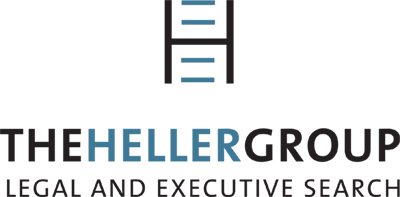The saying “the days are long, but the years are short” could easily apply to the first few years of practice for lawyers. Despite the inevitable long days and nights, your first and second years of practice go by in a flash – you are learning lots of new skills, taking on many different types of transactions and files for the first time, and working with new lawyers with different styles. The learning curve is steep and, at times, can be exhausting, but these years serve an important purpose – figuring out how you want to shape your career.
Many candidates find that by the time they have reached third year, they now have refined their goals about their career path; you may have a better sense of what you enjoy, what you don’t, and what direction you’d like to take your career in the years ahead. You may have also noticed that a lot of the job postings out there specify that magic “3 to 5 years of experience” – it’s no coincidence. Not only are you ready for the next step, your next employer is ready for you too.
If you’re feeling like a change, it’s a great time to explore your options, as mid-level associates are often in high demand. Before you start plugging “legal” into every job search engine you can find, here are some ways to make your search more efficient and more successful.
Narrow It Down
Before you start your search, take the time to figure out what you are looking for. This is not to say you should have a singular focus or job title in mind at the outset, but you can save a lot of time during your search, as well as the pain of making an impulse move, if you have some direction. To figure this out, consider the following:
- What have you learned so far?
- What are you good at?
- What do you like doing? (This may not be the same as what you’re good at)
- What do you enjoy about your current role?
- What don’t you enjoy?
- Why have you decided to look elsewhere?
- What kind of environment are you looking for? Consider the size of the team, and support available.
There are no right or wrong answers – some people might value more flexibility over salary. Others may want a larger platform with more sophisticated deals, understanding that this may mean a less flexible work schedule. Whatever you value, it’s good to know your “must-haves”, your “nice-to-haves” and your “deal breakers” before you start looking. Now you can weed out the roles that aren’t a fit early on.
Think Practically
The past year has made many of us realize that there is a lot more to a job than the actual substantive work. The pandemic has forced us all to adapt to new ways of working and the silver lining has been increased flexibility that we previously have not seen in the legal profession. The million dollar question is, of course, how will working look under the “new normal”? While no one can answer this yet, it is important for you to consider the practical points as well, such as:
- What salary range are you targeting?
- What geographic location are you considering? How open are you to commuting or moving?
- How important is title to you?
- Do you need or want remote/flexible working on an ongoing basis?
- Do you need or want a certain level of mentorship? Or are you open to taking things on more independently?
Update That Resume!
Now that you have some direction, it’s time to update your resume. Proper resume drafting is an entire blog in itself (check this blog out for our best tips!), but the crucial point is that it should be tailored to the job you’re seeking and should highlight your skills accordingly.
Think of your resume like a newspaper: what needs to be “above the fold” to catch the eye of a hiring manager? Draw attention to the experience and transferable skills that match the direction you’re heading, and understand that your resume is not carved in stone. As you start reviewing job descriptions and applying to suitable roles, you should consider if your new and improved resume highlights what you need for each particular role. If it doesn’t, change it. It’s worth the effort early to hopefully move on to the interview stage.
While you’re updating your resume, don’t neglect your LinkedIn account. Make sure your job history, with details regarding your area of practice, is up to date and consistent with your resume if you’re looking to make a change.
You’re now ready to start your search! Stay tuned for our next blog which will explore our best tips for mid-level jobs search and an update on current hiring trends.
Melanie is a Recruitment and Communications Consultant with The Heller Group. She is involved in the recruitment and placement of lawyers into law firms and corporations. Melanie is also responsible for the corporate communications related to The Heller Group.
Image via shutterstock


